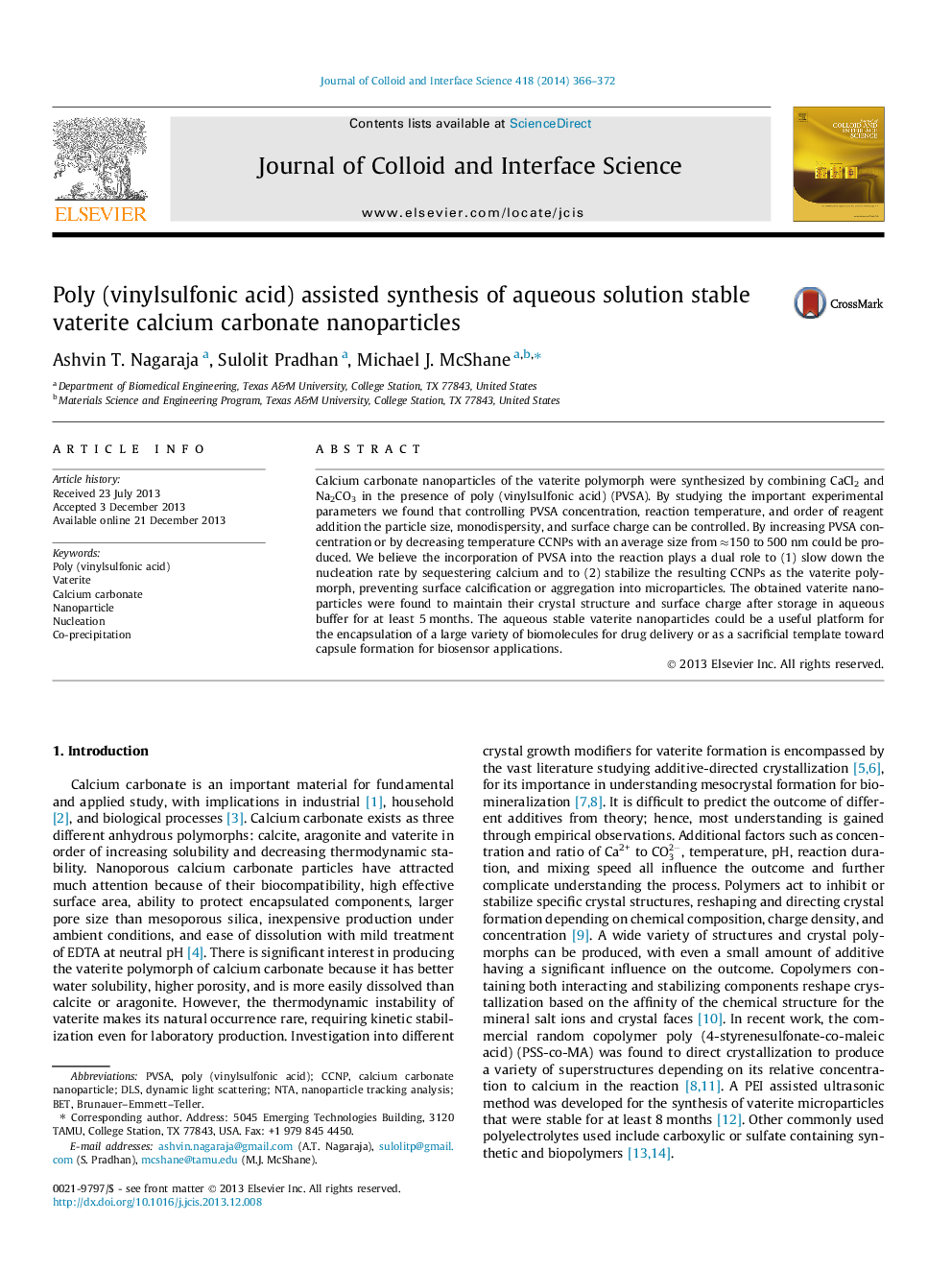| Article ID | Journal | Published Year | Pages | File Type |
|---|---|---|---|---|
| 6998471 | Journal of Colloid and Interface Science | 2014 | 7 Pages |
Abstract
Calcium carbonate nanoparticles of the vaterite polymorph were synthesized by combining CaCl2 and Na2CO3 in the presence of poly (vinylsulfonic acid) (PVSA). By studying the important experimental parameters we found that controlling PVSA concentration, reaction temperature, and order of reagent addition the particle size, monodispersity, and surface charge can be controlled. By increasing PVSA concentration or by decreasing temperature CCNPs with an average size from â150 to 500Â nm could be produced. We believe the incorporation of PVSA into the reaction plays a dual role to (1) slow down the nucleation rate by sequestering calcium and to (2) stabilize the resulting CCNPs as the vaterite polymorph, preventing surface calcification or aggregation into microparticles. The obtained vaterite nanoparticles were found to maintain their crystal structure and surface charge after storage in aqueous buffer for at least 5Â months. The aqueous stable vaterite nanoparticles could be a useful platform for the encapsulation of a large variety of biomolecules for drug delivery or as a sacrificial template toward capsule formation for biosensor applications.
Keywords
Related Topics
Physical Sciences and Engineering
Chemical Engineering
Colloid and Surface Chemistry
Authors
Ashvin T. Nagaraja, Sulolit Pradhan, Michael J. McShane,
